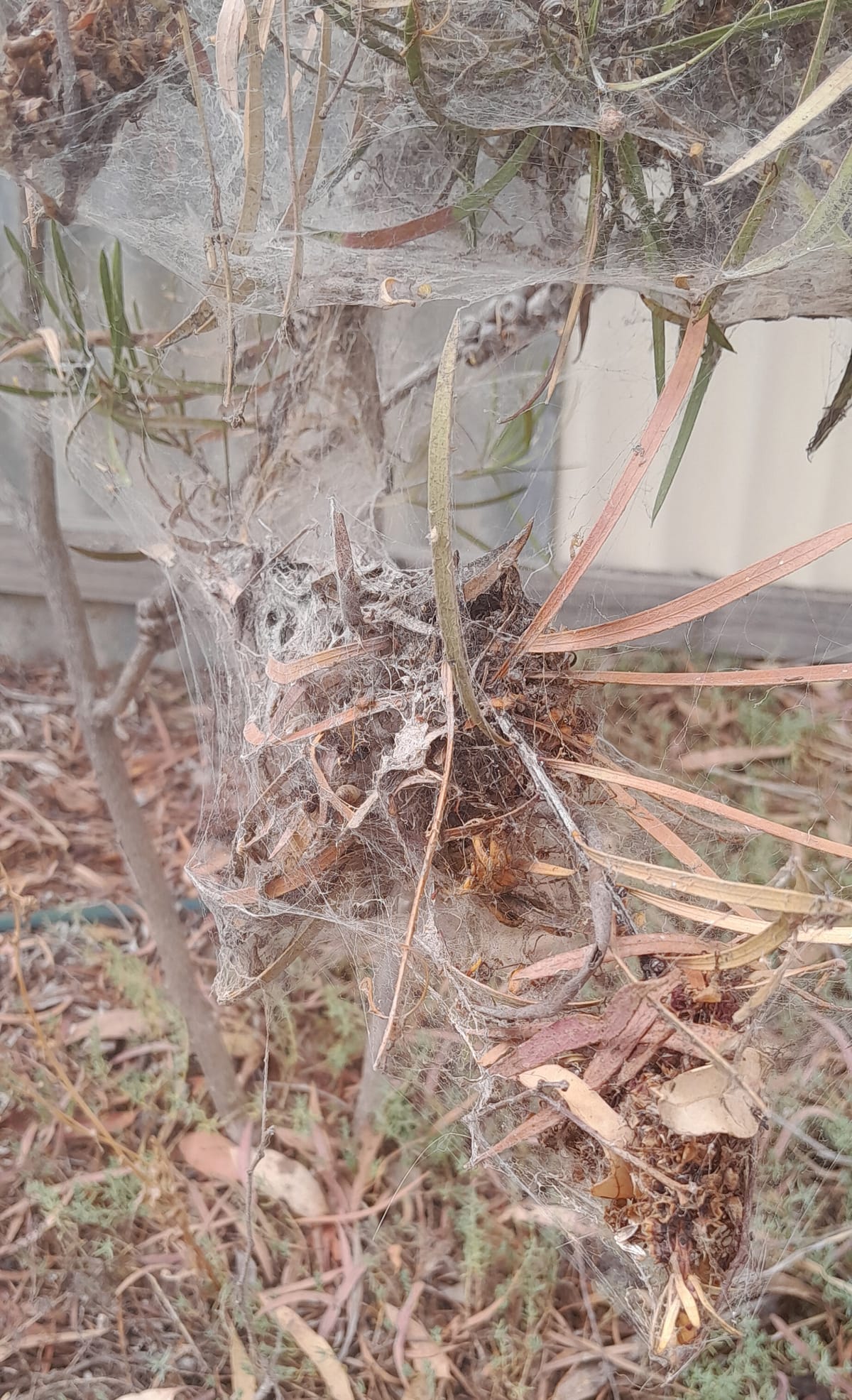Spiders in the garden

Readers may recall the column about ants. This time it is about spiders. Like ants, spiders can be a mixed blessing and we are guaranteed to have spiders in our gardens.
Spiders do a wonderful job at keeping insects in check. Most spiders spin webs to ensnare insects, some spiders hunt their prey, others wait in ambush. Once caught insects are quickly wrapped in silk and injected with venom to paralyse them. Some spider’s venom is powerful enough to kill a person, some result in a painful bite while others are barely felt at all. Many people are frightened of spiders. Personally, I am pretty laid back. I live in a mudbrick house and spiders love a mudbrick house. Either in the house or in the garden I follow a live and let live policy.
My favourite garden spiders are the golden orb spider. They spin a large orb web and providing it is not over a path I leave it alone. It gives me something else to observe while having a cuppa. They live for months, dying once the frosts come. The other orb spider around Rushworth is the little five-pointed spider (it has many common names). It is quite colourful and has five points on its abdomen. They usually insist on spinning their webs across paths. Walking into a web is not most people’s idea of fun. I like these spiders and often carry a small stick to clear the paths of their webs.
I know there are huntsmen spiders in my garden because they stray inside. I rarely see them outside. If inside I generally leave them alone unless they become a nuisance. I use a jar and sheet of paper to catch them. I let them go well away from the house so they do not simply turn around and come back inside.
Mouse spiders and trapdoor spiders are related. Both live in vertical holes in the ground. The mouse spider we get in Rushworth has an open hole. Trapdoor spiders have a small round trapdoor covering their hole. The venoms of both are quite toxic but they are reluctant to bite.
Redbacks are common around our sheds and gardens and their bites can be lethal. Never put your hands into nooks and crannies without first checking. They love old flowerpots and containers as well as sheltered places amongst landscaping. They are not aggressive but may bite when disturbed Look for their ‘trip line’ webs and spay with insecticide. I also like to use an insect barrier spray to postpone their return. I try not to leave pots etc around but there are always a few thrown aside and forgotten.
For some years gardeners were complaining about a spider bite that was very painful, itchy and sometimes resulted in ulcers. The culprit was eventually identified as being the white-tail spider. It is a hunting spider that shelters under loose bark, in crevices and in loose mulch. Like other spiders it does not bite unless disturbed, which happens when gardeners are weeding or cutting back shrubs. Wear gloves. White-tails often come inside. A good hit of insect spray soon fixes them. Don’t use a ‘floordrobe’ they love sheltering in clothes dumped on the floor.
These are some amazing spider webs in my garden. They are in a corner where I rarely need to go so I have left them in peace. However, they are slowly spreading. I thought it ends up like the spider scene in the Forbidden Forest (Harry Potter) I would deal with them, but it now appears that they are slowly killing the shrub so their days are numbered.
Scorpions are not spiders. I get two species in my garden. They are both small and live under rocks. They have painful stings but are not lethal. They are nocturnal and usually go unnoticed until you start moving rocks around. They are not a problem and are best left alone.
If you have children, why not introduce them to the ‘safer’ spiders in your garden? Children find golden orbs fascinating. They will learn that spiders are not all bad and will learn to respect them as part of the natural world.
Zen Gardner




